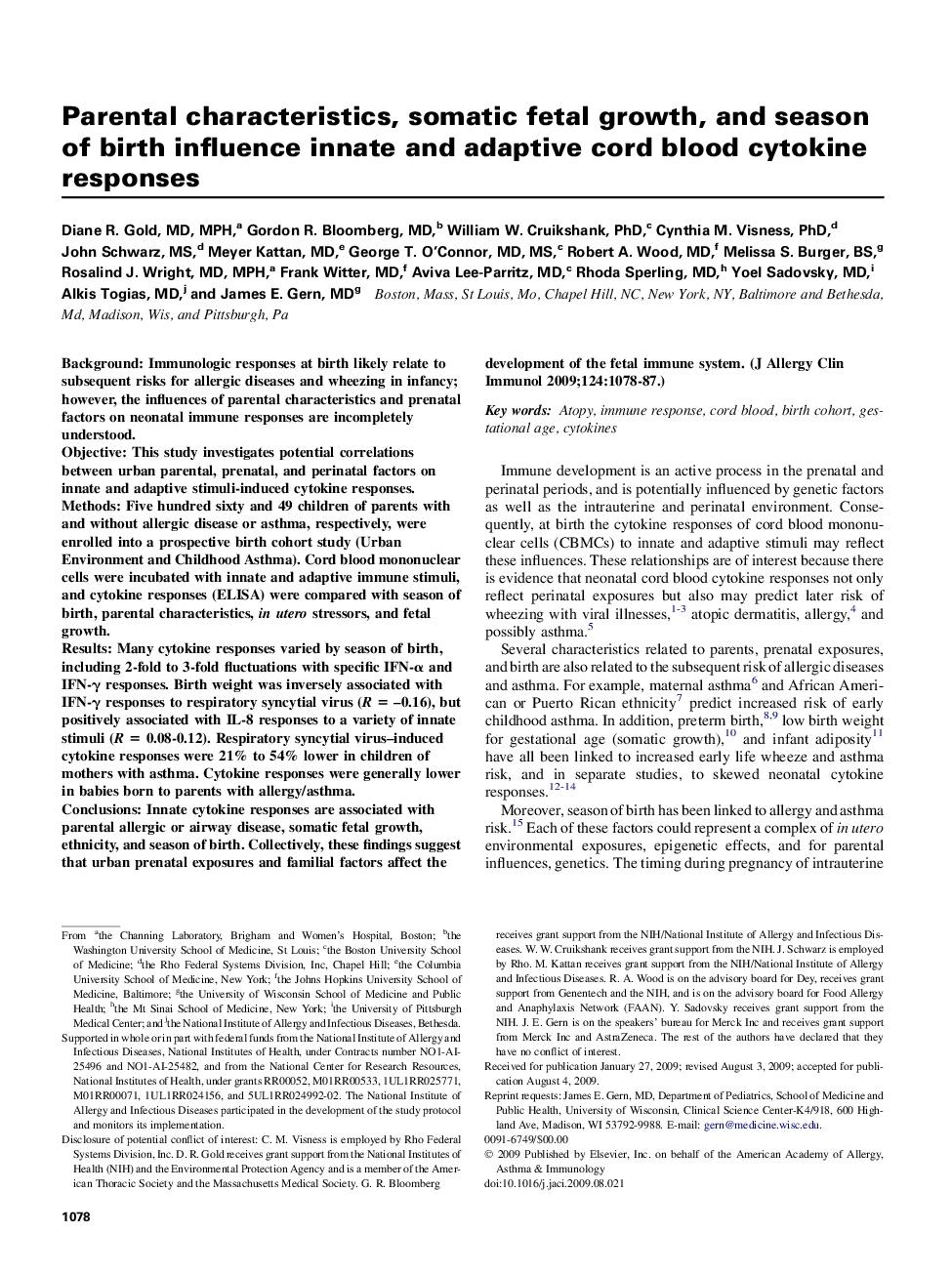| Article ID | Journal | Published Year | Pages | File Type |
|---|---|---|---|---|
| 3200480 | Journal of Allergy and Clinical Immunology | 2009 | 10 Pages |
BackgroundImmunologic responses at birth likely relate to subsequent risks for allergic diseases and wheezing in infancy; however, the influences of parental characteristics and prenatal factors on neonatal immune responses are incompletely understood.ObjectiveThis study investigates potential correlations between urban parental, prenatal, and perinatal factors on innate and adaptive stimuli-induced cytokine responses.MethodsFive hundred sixty and 49 children of parents with and without allergic disease or asthma, respectively, were enrolled into a prospective birth cohort study (Urban Environment and Childhood Asthma). Cord blood mononuclear cells were incubated with innate and adaptive immune stimuli, and cytokine responses (ELISA) were compared with season of birth, parental characteristics, in utero stressors, and fetal growth.ResultsMany cytokine responses varied by season of birth, including 2-fold to 3-fold fluctuations with specific IFN-α and IFN-γ responses. Birth weight was inversely associated with IFN-γ responses to respiratory syncytial virus (R = −0.16), but positively associated with IL-8 responses to a variety of innate stimuli (R = 0.08-0.12). Respiratory syncytial virus–induced cytokine responses were 21% to 54% lower in children of mothers with asthma. Cytokine responses were generally lower in babies born to parents with allergy/asthma.ConclusionsInnate cytokine responses are associated with parental allergic or airway disease, somatic fetal growth, ethnicity, and season of birth. Collectively, these findings suggest that urban prenatal exposures and familial factors affect the development of the fetal immune system.
